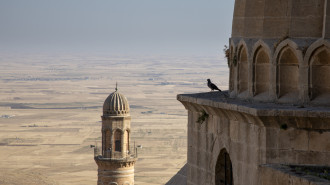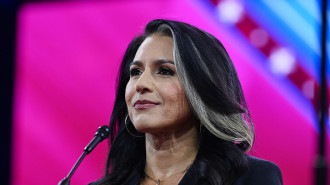Doctors to strike in Sudan following days of protests
In a statement, it said the doctors will continue to deal with emergencies during the strike, which begins on Monday and aims to "paralyse" the government and deny it much-needed revenues.
The coalition also called on citizens to continue their street protests, which entered their fifth day Sunday, according to activists, with demonstrations in several cities.
There have also been calls by a number of independent trade and professional unions for a general strike on Wednesday.
The protests are chiefly over the rising prices and shortages of food and fuel.
A steep rise decreed last week in the price of bread, a main staple for most Sudanese, proved to be the final straw.
The protests prompted authorities to suspend classes in schools and universities in a string of cities, including the capital Khartoum, and to impose a nighttime curfew in some of them.
According to Sudanese activists, protests took place on Sunday in north Kurdofan, west of Khartoum, and Gadaref, east of the capital, where six people were reported killed last week in clashes with police. They said protests also spread to south and north Darfur in western Sudan.
Protests continued in the railway city of Atbara north of Khartoum as well, where police used tears gas and batons to disperse nearly 1,000 demonstrators, according to the activists, who spoke on condition of anonymity for fear of reprisals.
Participants in the protests have so far numbered in the hundreds or low thousands in each location, but their continuation for nearly a week despite the use of force by police suggests the level of popular discontent over Bashir's rule is at a dangerously high level.
Twitter Post
|
Opposition leader Sadiq al-Mahdi, whose democratically elected but ineffective government was ousted in a military coup led by Bashir in 1989, told reporters on Saturday that as many as 22 people had been killed in clashes with police since the protests began. The government has acknowledged fatalities but provided no figures.
Mahdi triumphantly returned home last week from a year in exile abroad. Thousands of his supporters welcomed him.
Addressing a news conference Saturday, he said the protests were legitimate and that he supported a "peaceful change" of government.
Bashir, who is in his mid-70s, has in the past ordered the use of force against protesters, including in the last round of unrest in January, successfully crushing them to remain one of the longest-serving leaders in the region.
Although his time at the helm has seen Sudan plunging into one crisis after another, he is seeking a new term in office.
Lawmakers loyal to him are already campaigning to rally support for constitutional amendments that would allow him to run in the 2020 election.
While sparked by worsening economic conditions, the ongoing protests have taken an increasingly political slant, particularly after the killing of protesters on Thursday.
Demonstrators now chant slogans calling on Bashir's Islamic government to step down.
Qatar's ruler Sheikh Tamim bin Hamad Al-Thani spoke to Bashir by phone on Saturday, lending his support "to help Sudan get through this crisis" and offering aid.
Qatar is at sharp odds with some of Sudan's key Arab backers, including Saudi Arabia, the UAE and Egypt, its powerful neighbour to the north.
Qatar's aid offer, the details of which are yet to be announced, could either discourage those allies from helping Bashir ride out the current crisis or, to the benefit of Sudan, prompt them to match Qatar's aid or even outdo it.
Agencies contributed to this report.
Follow us on Twitter: @The_NewArab







 Follow the Middle East's top stories in English at The New Arab on Google News
Follow the Middle East's top stories in English at The New Arab on Google News
![Israel demolished homes in the Silwan area [Getty]](/sites/default/files/styles/image_330x185/public/2024-11/GettyImages-2183868368.jpg?h=199d8c1f&itok=TweR8vd0)

